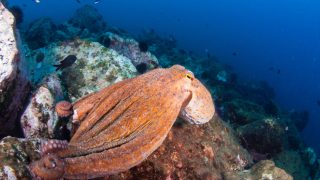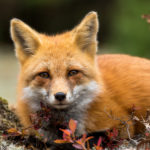
Octopus Farming Ban (New Jersey)
S. 3914/A. 5078
In recognition of the “advanced cognitive abilities” of octopuses, An Act prohibiting the aquaculture of any species of octopus for the purpose of human consumption (S. 3914/A. 5078) seeks to prohibit octopus aquaculture, also known as octopus farming.
Status
The Animal Legal Defense Fund supports this bill.
Primary Sponsors: Sens. Nilsa I. Cruz-Perez (D-5), and Douglas J. Steinhardt (R-23) and Assemblymembers Clinton Calabrese (D-36), Cody D. Miller (D-4), and Alexander Schnall (D-30)
Senate Co-Sponsors: Sens. Andrew Zwicker (D-16), Declan J. O’Scanlon Jr. (R-13), Raj Mukherji (D-32), Bob Smith (D-17), and Vin Gopal (D-11)
Assembly Co-Sponsors: Assemblymembers James J. Kennedy (D-22), Christian E. Barranco (R-25), Jessica Ramirez (D-32), Luanne M. Peterpaul, Esq. (D-11), Margie Donlon, M.D. (D-11), Dan Hutchison (D-4), Melinda Kane (D-6), Balvir Singh (D-7), and Lisa Swain (D-38)
Introduction Date: December 5, 2024
In recognition of the “advanced cognitive abilities” of octopuses, An Act prohibiting the aquaculture of any species of octopus for the purpose of human consumption (S. 3914/A. 5078) seeks to prohibit octopus aquaculture, also known as octopus farming, in New Jersey.
Octopus farming is inhumane and poses significant environmental and public safety concerns.
Octopuses have significant cognitive ability. They can learn new skills, can navigate complex mazes, are known escape artists, and even use tools. Because of their complex mental faculties, octopuses have high enrichment needs that simply cannot be met in farming environments. Keeping octopuses in this manner would subject them to intense boredom and mental stress.
Octopuses are also solitary creatures, viewing other octopuses as a threat. On farms, octopuses would be cruelly overcrowded into small pools together, causing significant stress, aggression, and high mortality rates. Common, cruel methods of slaughtering octopuses include freezing and clubbing them to death.
Octopus farming could harm the surrounding ecosystems and marine life by spreading pollution and changing water temperatures, and there is a significant risk of farmed octopuses escaping their enclosures and impacting local wild populations. Industrial aquaculture farms are breeding grounds for pathogens, and octopuses are hosts of multiple pathogens and zoonotic diseases that can spread to humans, such as cholera. The use of antibiotics to combat these pathogens, many of which are used to treat humans as well, has the potential for the creation of multi-drug-resistant bacteria.
Similar legislation has passed in Washington and California, and is being considered in Oregon, Hawaii (S.B. 1159/H.B. 365) and at the federal level with the Opposing the Cultivation and Trade of Octopus Produced through Unethical Strategies (OCTOPUS) Act (S.4810).
Why is this legislation important?
S.3914/A.5078 is an opportunity to prohibit octopus farming in New Jersey before it starts. Octopus farming is an industry that is unsustainable, environmentally destructive, and inhumane. Passing S. 3914/A. 5078 would ensure that octopus farms, and the inherent risks that come with them, do not come to the state of New Jersey.
For more information about animal protection legislation in New Jersey and opportunities to take action for animals, visit aldf.org/newjersey.
Sign Up!
Join the Animal Legal Defense Fund's email list to stay up to date on lawsuits, legislation, and regulations affecting animals.


